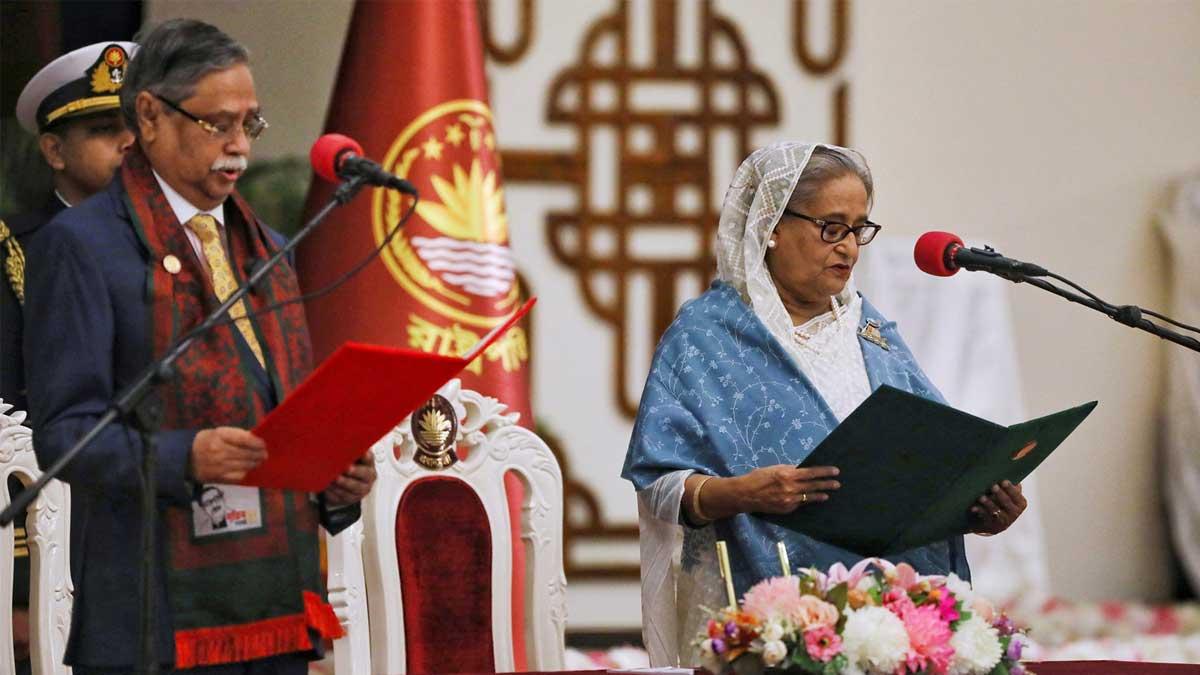On Thursday, Sheikh Hasina was sworn in as the prime minister of Bangladesh for the fifth term, following her party's decisive victory in the recent general elections boycotted by the main opposition, BNP, and its allies. President Mohammad Shahabuddin administered the oath of office to the 76-year-old leader at the Bangabhaban presidential palace in a ceremony attended by politicians, foreign diplomats, civil society figures, and senior civil and military officials.
This marks Hasina's 12th term overall and her fourth consecutive term as prime minister. She has been leading Bangladesh since 2009, making her one of the world's longest-serving female heads of government. The Awami League, led by Hasina, secured 223 seats in the 300-member Parliament.
The opposition BNP, headed by ex-prime minister Khaleda Zia, boycotted the elections after its demand for a non-party caretaker government was rejected. Hasina has formed her government for the fourth straight term, introducing changes in her Cabinet by dropping several heavyweights. Notable exclusions include the foreign minister, finance minister, planning minister, agriculture minister, and commerce minister from the new Cabinet.
The new council of ministers includes 14 new faces as full ministers and seven state ministers, with some being elevated to cabinet ministers. Among the surprises is the inclusion of Samanta Lal Sen, a doctor specializing in burn wounds, as a technocrat minister. Simin Hossain Rimi, the daughter of Bangladesh's first prime minister, is among the new faces named as state ministers.
While India, China, Russia, and several Far Eastern and Middle Eastern countries congratulated Hasina on her victory, Western nations, including the United States and the UK, expressed reservations about the election's inclusivity, and the United Nations also voiced concerns.
(With Agency Inputs)
ALSO READ |
ALSO READ |


















